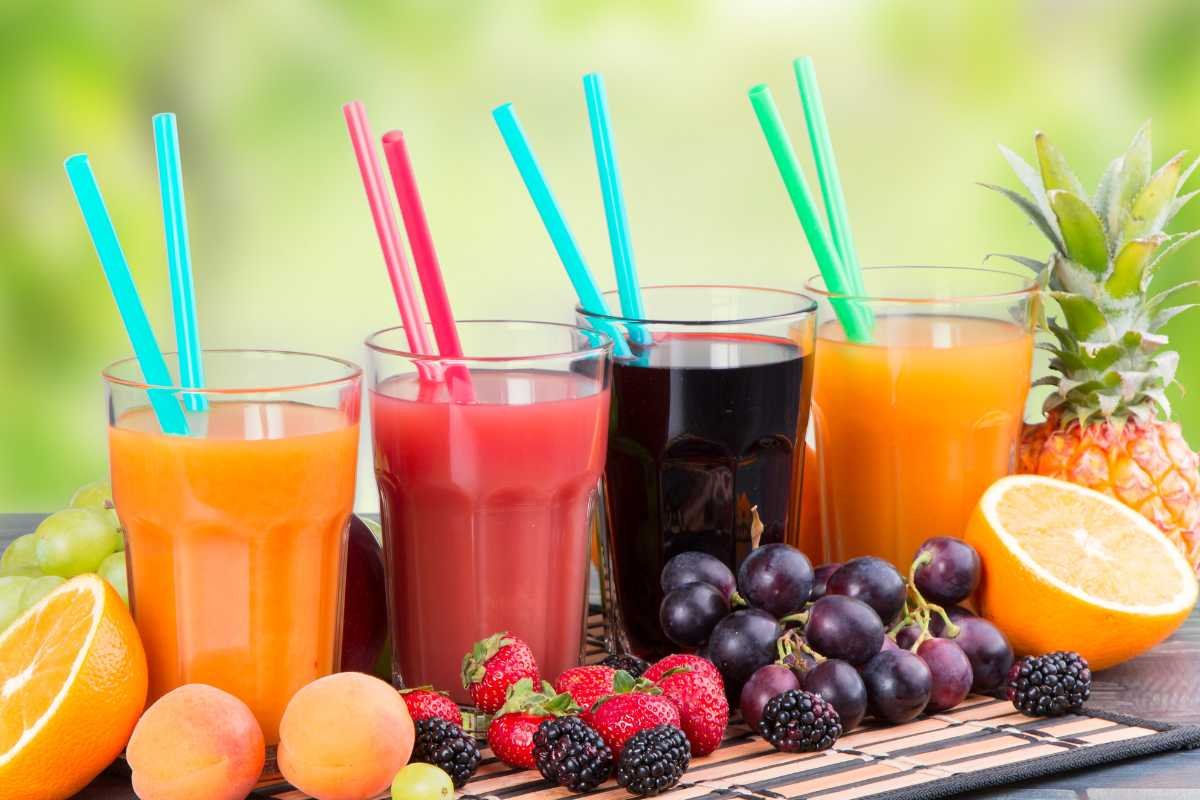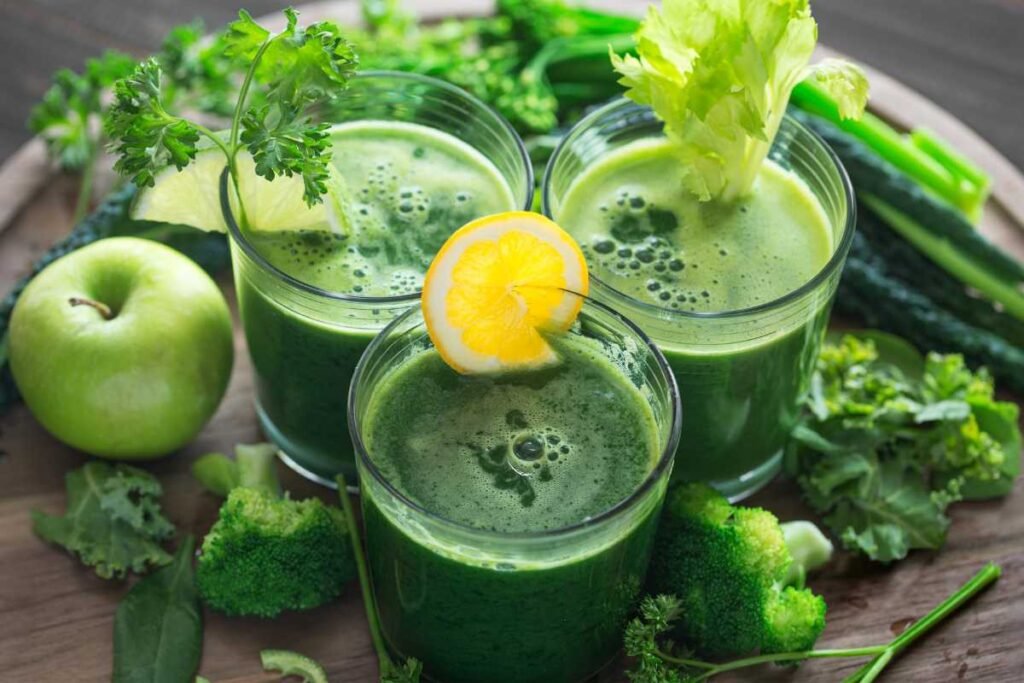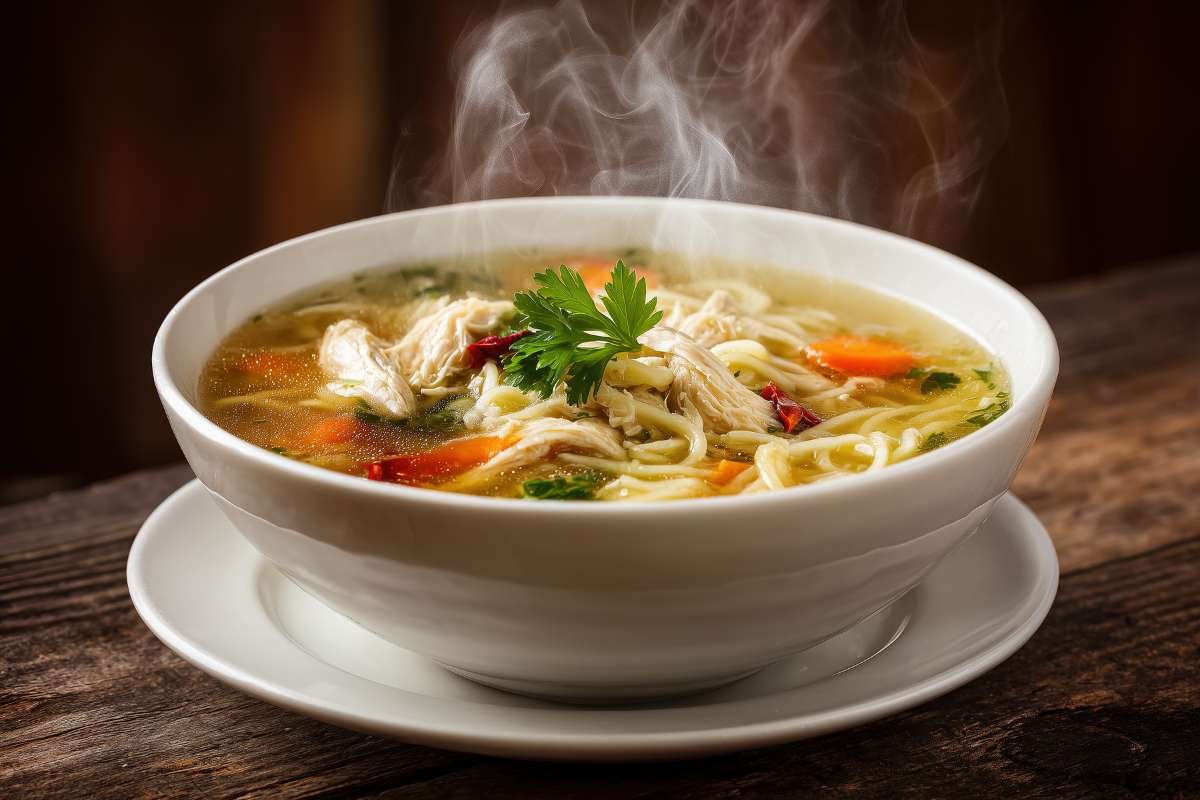Juice cleanses have gained popularity as a way to detoxify the body, kickstart weight loss, and boost overall health. But what exactly is cleansing, and is it the right choice for you? In this detailed guide, we’ll explore everything you need to know about juice cleanses, from the potential benefits to the risks, how to do it safely, and what to expect during the process.
What is a Juice Cleanse?
A juice cleanse is a type of detox diet that involves consuming only fruit and vegetable juices for a set period, typically ranging from one to seven days. The idea behind it is to give your digestive system a break while flooding your body with essential vitamins, minerals, and antioxidants from the juices.
During a cleanse, solid foods are eliminated, and the primary source of nutrition comes from freshly pressed juices. These juices are usually made from a combination of fruits, vegetables, and sometimes herbs or spices to create nutrient-dense beverages that can help cleanse the body of toxins and impurities.
Potential Benefits

Proponents of juice cleanses claim that they offer several health benefits, including:
- Detoxification: They are believed to help the body eliminate toxins and waste products accumulated from processed foods, environmental pollutants, and other sources.
- Weight Loss: Many people see it as a way to jumpstart weight loss. Since juices are low in calories and free from solid food, a short-term cleanse can lead to a caloric deficit, resulting in temporary weight loss.
- Improved Digestion: By giving the digestive system a break from processing solid foods, a juice cleanse may help improve digestion and reduce bloating.
- Increased Energy: Some people report feeling more energized and mentally clear during and after a cleanse, likely due to the high intake of vitamins, minerals, and antioxidants.
- Enhanced Skin Health: The vitamins and antioxidants in juices, particularly those rich in vitamin C, can promote healthier, more radiant skin.
- Resetting Eating Habits: It can help reset unhealthy eating habits and reduce cravings for sugar, caffeine, and processed foods.
Risks and Considerations
While juice cleanses may offer some benefits, they also come with potential risks and drawbacks:
- Nutrient Deficiencies: It often lack essential nutrients like protein, healthy fats, and fiber. Over time, this can lead to nutrient deficiencies and muscle loss.
- Blood Sugar Spikes: Many fruit juices are high in natural sugars, which can cause blood sugar levels to spike and crash, leading to feelings of fatigue and irritability.
- Lack of Satiety: Liquid diets can leave you feeling hungry and unsatisfied, which may lead to overeating once the cleanse is over.
- Temporary Weight Loss: The weight loss experienced during a juice cleanse is often due to water loss and reduced caloric intake, making it difficult to sustain once regular eating resumes.
- Digestive Discomfort: Some people may experience digestive issues like diarrhea, nausea, or stomach cramps during a cleanse.
- Not Suitable for Everyone: They are not recommended for pregnant or breastfeeding women, people with certain medical conditions (such as diabetes or kidney disease), or those with a history of eating disorders.
How to Do a Juice Cleanse Safely

If you decide to try a juice cleanse, it’s important to do it safely and thoughtfully. Here’s a step-by-step guide to help you get started:
- Choose the Right Duration: Determine how long you want to cleanse. If you’re new to juice cleanses, start with a short one- to three-day cleanse. Longer cleanses (five to seven days) may be more challenging and should be approached with caution.
- Prepare Your Body: A few days before starting the cleanse, begin eliminating processed foods, caffeine, alcohol, and sugar from your diet. Focus on eating whole, plant-based foods to ease your body into the cleanse.
- Select High-Quality Juices: Whether you make your juices at home or purchase them from a store, opt for cold-pressed, organic juices made from fresh, whole fruits and vegetables. Avoid juices with added sugars or preservatives.
- Stay Hydrated: In addition to drinking your juices, make sure to drink plenty of water throughout the day to stay hydrated and support the detoxification process.
- Listen to Your Body: Pay attention to how your body feels during the cleanse. If you experience extreme fatigue, dizziness, or other concerning symptoms, it may be a sign that the cleanse isn’t right for you, and you should consider stopping.
- Gradually Reintroduce Solid Foods: When the cleanse is over, ease back into solid foods gradually. Start with light, easy-to-digest foods like fruits, vegetables, and whole grains before returning to a regular diet.
- Consider Supplementing: If you’re worried about nutrient deficiencies, consider taking a multivitamin or supplementing with protein powder during the cleanse, but consult with a healthcare provider first.
Sample Juice Cleanse Plan

Here’s a sample one-day juice cleanse plan to give you an idea of what a typical day might look like:
- Morning (8:00 AM): Start your day with a glass of warm lemon water to kickstart digestion and hydration.
- Juice 1 (9:00 AM): Green Juice (Kale, spinach, cucumber, celery, green apple, lemon, and ginger)
- Juice 2 (11:00 AM): Carrot-Orange Juice (Carrots, oranges, turmeric, and a pinch of black pepper)
- Juice 3 (1:00 PM): Beet Juice (Beets, carrots, apple, and ginger)
- Juice 4 (3:00 PM): Citrus Cooler (Grapefruit, lemon, lime, mint, and cucumber)
- Juice 5 (5:00 PM): Tropical Juice (Pineapple, mango, and coconut water)
- Juice 6 (7:00 PM): Herbal Tea or Watermelon Juice (Watermelon, mint, and a dash of lime)
Note: Adjust the number of juices and timing based on your personal needs and schedule. You can also drink herbal teas and water throughout the day.
What to Expect?
Everyone’s experience with a juice cleanse can vary, but here’s what you might expect during the process:
- Day 1: The first day is often the easiest as you’re motivated and excited. You may feel energized and light, but some people experience mild headaches or fatigue as the body adjusts to the lack of solid food.
- Day 2-3: By the second or third day, you might start to feel more fatigued, and cravings for solid food may intensify. It’s important to stay hydrated and rest as needed. Some people also experience digestive changes, such as more frequent bowel movements or bloating.
- Day 4-5: If you’re doing a longer cleanse, you might start to feel more accustomed to the routine by day four or five. Some people report a feeling of mental clarity and increased energy at this stage.
- Post-Cleanse: After the cleanse, it’s crucial to reintroduce solid foods gradually. Many people find that their taste preferences have changed, with a greater appreciation for whole, natural foods and less desire for processed or sugary items.
Conclusion
A juice cleanse can be a refreshing and revitalizing experience for those looking to reset their bodies, but it’s essential to approach it with caution and awareness. While cleansing may offer short-term benefits like increased energy, weight loss, and improved digestion, it’s not a long-term solution for health or weight management.
Before starting, consider your overall health, lifestyle, and goals. If you decide to proceed, follow the guidelines outlined in this guide to ensure a safe and beneficial experience. And remember, a healthy, balanced diet that includes a variety of whole foods is the best way to support your body’s natural detoxification processes and maintain long-term health.
If you’re unsure whether a juice cleanse is right for you, consult with a healthcare provider or a registered dietitian to get personalized advice tailored to your needs.









